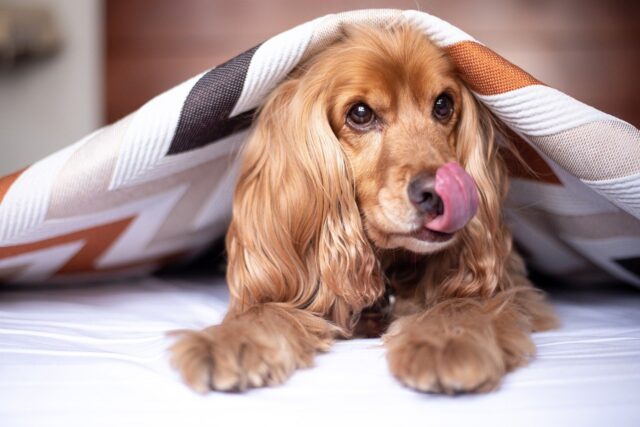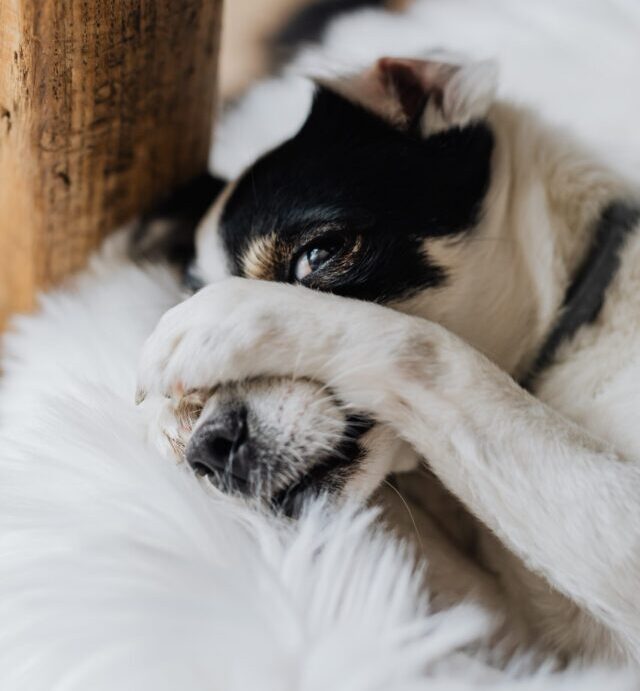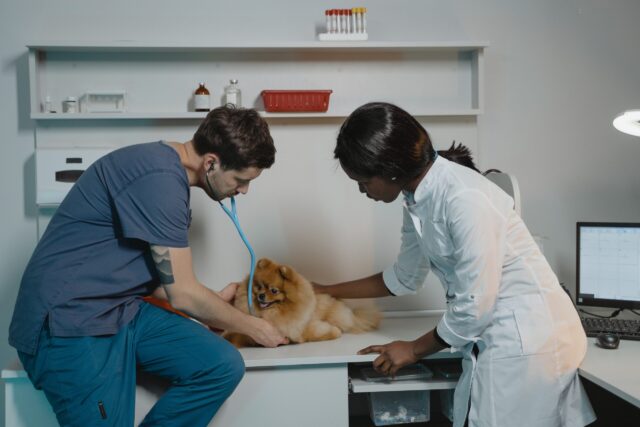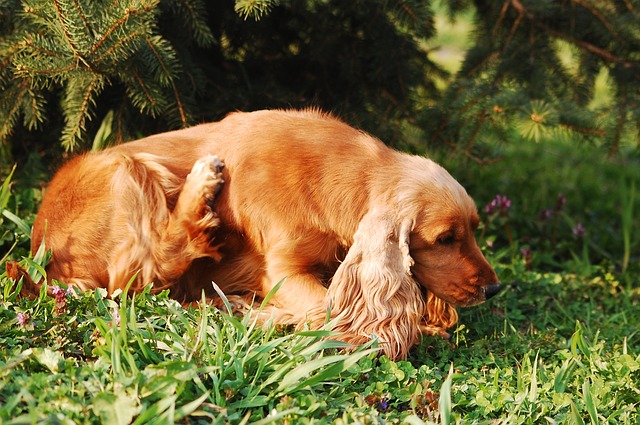We talk a lot about pet food safety and what should or shouldn’t be in your dog’s food or treats. However, people typically don’t give much thought to what they put on their dogs, but they should. Unlike humans, dogs lick themselves, especially just after we have put something on them. This means they are ingesting whatever is you just put on them – is it safe?
Alcohol – namely Isopropyl or rubbing alcohol – is one of those substances that is creeping into use in the pet industry. Should you worry?
Obviously, vets use alcohol to kill bacteria, prior to giving your dog a shot, for example.
Isopropyl Alcohol – Safe for Dogs?
Dr. Ann Hohenhaus, staff doctor at The Animal Medical Center in NYC claims “many pets lick this off their fur and the small amount consumed is not dangerous. The same would be true for the small amount of isopropyl contained in pet wipes. Clearly, the alcohols contained in medications have been proven safe or the Food and Drug Administration would not have approved the use of these medications.”
However, she goes on to say, “Isopropyl alcohol can be very drying to delicate skin. If a pet were to drink isopropyl alcohol, which is unlikely because of its bitter taste, it would cause nausea, vomiting, depression and coma. If it is inhaled, it can irritate the respiratory tract.”

I have heard of dog’s drinking anti-freeze (supposedly has a sweet taste), gasoline, and loving bitter apple (bitter taste!), so I would still keep it out of reach. But what if it’s put on their body and they lick it off?
Isopropyl Alcohol’s Material Safety Data Sheet says the following:
“The substance may be toxic to kidneys, liver, skin, central nervous system. Repeated or prolonged exposure to the substance can produce target organ damage. Inhalation: If inhaled, remove to fresh air. If not breathing, give artificial respiration. If breathing is difficult, give oxygen. Get medical attention if symptoms appear. Ingestion: do NOT induce vomiting unless directed to do so by medical personnel. Get medical attention if symptoms appear.”
The MSDS goes on to warn about acute oral, dermal, and vapor toxicity in animals, though (sadly) special remarks on toxicity to animals are “not available.”
Keep Rubbing Alcohol Stored Away Safely
An article from Peteducation.com says “symptoms can be seen after ingestion of less than 1.3 ml per pound of body weight.”
To put that into perspective, 1.3 ml is equal to only a quarter of a teaspoon. So, a 10 lbs. dog could fall ill after only two and a half teaspoons. One big lap of the tongue can take that and more into the mouth and down the throat quickly and easily. Be sure to keep rubbing alcohol as well as other harmful chemicals, tightly sealed and put away where animals and children can’t reach them.

Dr. Hohenhau reveals, “Proplyene glycol was once used as an ingredient in soft moist pet foods but its use has been discontinued because when consumed as part your pet’s diet, it can damage red blood cells.”
Could it be that isopropyl alcohol, once thought safe, should be restricted as well?
Using Rubbing Alcohol on Dogs – Is it Safe?
With so many alternative products on the market, just skip rubbing alcohol altogether when it comes to your dog.
“Alcohol may be used in wipes to promote rapid drying after use,” says Dr. Hohenhau. “Alcohols are often used as a solvent to keep medication in liquid form. Since alcohols kill bacteria they are also components of various medications to help maintain sterility.”
They are also found in human lotions, shaving creams, sanitizers (such as a hand santizer), colognes, etc. If your dog is licking these off of you – they are ingesting the alcohol. Even worse, would be if your dog ingested an entire container of one of these products.

Can I Use Rubbing Alcohol to Clean My Dog’s Wounds?
Do not use rubbing alcohol on a dog’s wounds. While you are trying to help to heal, using alcohol on open dog wounds can actually make things worse. Blue Pearl Vet advises rubbing alcohol “can be used as an antiseptic in a controlled hospital setting, but if used inappropriately (i.e. on open wounds, in high concentrations, in large volumes, etc.) it can cause damage to the skin, delay wound healing, and have negative effects on other body systems.”
Does Rubbing Alcohol Kill Fleas?
Rubbing alcohol does kill fleas, but do not use alcohol to treat fleas on your dog. There are far more options for treating fleas, ones that won’t possibly cause detriment to your dog.

Reader’s Digest suggests people use it to remove ticks off their dogs. But then you are pouring alcohol directly into your dog’s body through an open wound. Aside from the sting, it might not be as safe as you think. Especially if you live somewhere where your dog gets 10 ticks a day (like in the Eastern U.S).
Is your dog having itch problems and suspect parasites? Learn How To Spot And Treat Fleas, Ticks, And Lice.
There are also pet products out there that contain alcohol. Here are just a few:
- Pad Kote™ by Happy Jack has isopropyl alcohol listed as an inactive ingredient.
- Rapigel® has 350mg of isopropyl alcohol! This product is supposedly for horses and greyhounds for muscle pain or soreness. Think about the size difference between a horse and a dog. Then think about how easily your dog can lick this off his muscles. It also includes a large amount of Menthol (20mg), which can cause lung damage in a dog.
- GNC Pets Dog Essentials Ear Care Wipes include alcohol, along with glycerin.
- 21st Century Tear Stain Remover Dog Pads contains propylene glycol, which is the exact substance that Dr. Hohenhau says was discontinued due to red blood cell damage.
Other Alcohols
There are many types of alcohols, with varying degrees of toxicity. Here is Dr. Hohenhau’s list:
Ethyl alcohol or ethanol or alcohol spirits or grain alcohol pose a greater danger to your pet than to you. Alcohol intoxication looks the same in pets as people – vomiting, sleepiness, and in severe cases coma.
Denatured alcohol or denatured ethanol is also called methylated spirits. It is simply grain alcohol that has been treated to make it taste bad. If your pet drank denatured ethanol, it could become quite ill.
Methanol or wood alcohol might be found in a home as fuel for a small burner under a casserole dish or as a component of windshield washing fluid. It is toxic and causes gastrointestinal upset. Pets that ingest a large volume may need hospitalization.
Ethylene glycol also called ethylene alcohol is the deadly component of antifreeze. Ethylene glycol is very sweet and appealing to pets when they stumble upon it when it has leaked onto the street from a car radiator. Initially, ethylene glycol may cause vomiting, staggering, and seizures, but ultimately it damages the kidneys and can cause kidney failure.
The Safest Bet
Don’t buy products with alcohol in them! There are plenty of all-natural, alcohol-free alternatives. If you need some new wipes for your dog, check out Project Paws® Aloe & Oatmeal Grooming Wipes for Dogs.


Comments are closed.